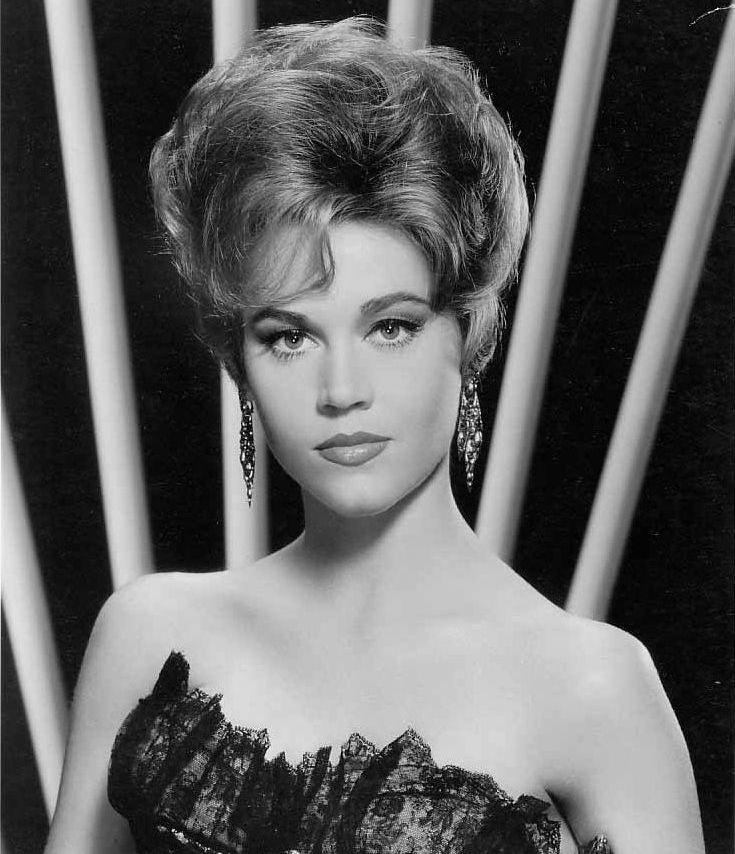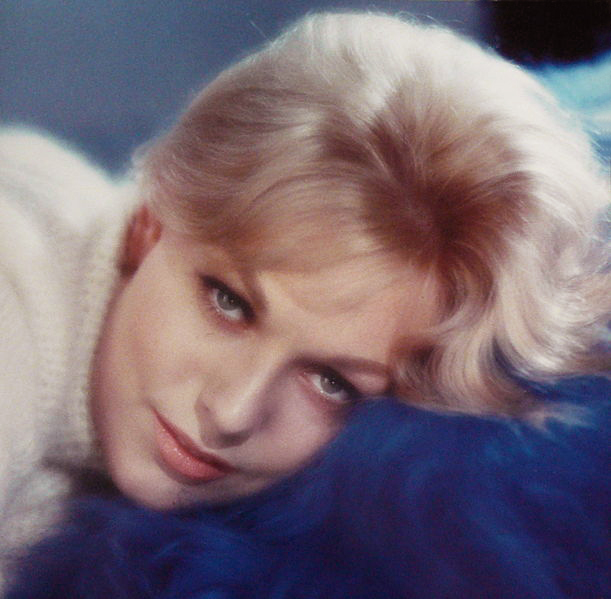
Jane Fonda in Sunday in New York, 1963 (pic Wikimedia Commons)
I’ve forgotten where I first heard about You Must Remember This, ‘the podcast dedicated to exploring the secret and/or forgotten histories of Hollywood’s first century’. Despite that clunky tagline, this show, which is devised, written and presented with breathy enthusiasm by movie critic Karina Longworth, is as addictive as any boxed set I’ve watched this year.
There’s a lot to catch up on. Since its launch in 2014, You Must Remember This has already clocked up nearly 140 episodes. The subjects range from stars of the silent era (Theda Bara and Charlie Chaplin) to Hollywood legends like Humphrey Bogart, Joan Crawford and Marilyn Monroe – the latter being the most famous Tinseltown casualty of the ‘Dead Blondes’ series.

Kim Novak, 1962 (Photography: Frank Bez)
You Must Remember This debuted with a stand-alone show — ‘The Hard Hollywood Life of Kim Novak’. For technical and copyright reasons this ‘lost episode’ isn’t part of the show’s official feed but you can track it down on Soundcloud.
Novak starred in Hitchcock’s Vertigo opposite Jimmy Stewart, and for a brief period in the mid-to-late 50s became Hollywood’s biggest female star. As you might have guessed, Novak’s career was no picnic (to borrow the title of her 1955 hit). Body-shaming, an ill-fated love affair (with Sammy Davis, Jr) and evanescent stardom loom large in her story. It could be a template for many of the careers explored in later episodes.
Novak survived working with the Master of Misogyny, Alfred Hitchcock. But it is hard not to wince as the director gleefully explains to fellow auteur François Truffaut about the ‘unmasking’ of Novak’s Judy in Vertigo: ‘This means she has stripped but won’t take her knickers off’. Honestly, it made me think about this twisted ‘masterpiece’ in a new light.
As Karina Longworth recounts, Novak herself underwent a more recent unmasking, when she made a rare public appearance at the Oscars ceremony in March 2014. There was an ‘explosion of outrage’ when the then 81-year-old star unveiled her cosmetically altered lips, cheeks and brows to an unforgiving world. ‘What happened to Kim Novak’s face?’ screamed the Daily Mail headline, reflecting the meltdown on social media.
The trials and tribulations of Kim Novak pale into insignificance compared with the tortured life of actress Jean Seberg. In the nine-part series ‘Jean & Jane’, Longworth devotes almost nine hours to exploring how overbearing husbands, abusive directors, the media and even the FBI combined to make life hell for both Jane Fonda and Jean Seberg.
You Must Remember This really comes into its own here, with time to discuss some of Fonda and Seberg’s key roles, as well as the huge cast of characters who built them up and knocked them down at various points during the 60s and 70s. Longworth has obviously done her research and watched the movies, so this isn’t just an unedifying rehash of Fonda’s bulimia, father issues and anti-Vietnam War protests, and Seberg’s depression, drug addiction and involvement with the Black Panthers.
Fonda is currently starring to great acclaim in Grace and Frankie, the Netflix comedy about two sassy septuagenarians. Tragically, Seberg committed suicide in August 1979 at the age of 40. I remember reading about her death because this was around the time when I first got interested in cinema.
I borrowed a copy of Joe Hyams’ book about Bogart and Bacall from my local library. I was hooked on their May-December romance, obsessed with black-and-white films (we didn’t have colour TV) and determined to read as much as I could about Hollywood.
In recent years I’ve fallen out of love with cinema and with the stratospheric level of hype that seems to accompany every new release. But I think You Must Remember This may have rekindled my interest.
It’s hard to resist Karina Longworth’s perennially perky delivery (though episode one is quite downbeat in tone) and her regular invitation, ‘Join us, won’t you’. So I’m about to delve into the murky depths of her 12-part series, ‘Charles Manson’s Hollywood’.
Misogyny, madness, and Manson’s obsession with becoming a player on the Hollywood scene of the late 60s were just some of the factors that led to the mass murders of August 1969.
Of course, none of that adds up to appropriate listening for the ‘season of goodwill’. I hope You Must Remember This serves up a few sparkly baubles later this month, to make it an unforgettable Christmas.









